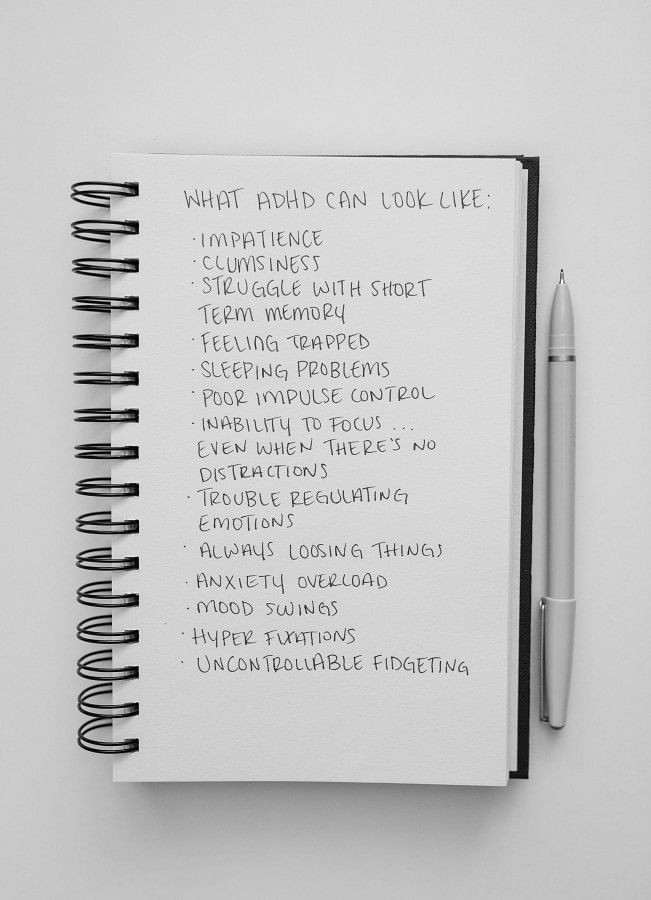How does it feel when your mind is racing with thoughts while you are trying to focus on a task? Or, you are trying to listen to something important but instead of following the speech/lecture, your mind drifts to other things and gives you overwhelming emotions. You cannot easily concentrate on long conversations, and cannot remember roads, people's names, or other detailed information. People misunderstand you for being irresponsible and inattentive but in reality, no matter how much you try, it's very difficult for you to focus on anything!
You might be one of 2 to 37.45 per cent of the Bangladeshi youth who experience symptoms of Attention Deficit Hyperactivity Disorder (ADHD). Only those who live with it understand just how isolating and challenging the journey can be.
While popularly considered trivial, ADHD can lead to significant problems and challenges. Its symptoms like inattention, forgetfulness, impulsivity, emotional instability, procrastination, and difficulty focusing can result in stress, anxiety, low self-esteem, and continuous restlessness. Untreated ADHD can cause career instability, increase the risk of mental health issues, and lead to impulsive behaviours. These symptoms can disrupt daily life significantly.
Students with ADHD might find it nearly impossible to concentrate on a teacher's lecture. Instead of following the class, their minds drift to lunch plans, video games, or last night's cricket match. They might fidget with their pen and frequently lose track of the lesson, which eventually leads them to frustration and confusion.

The struggles can finally result in misplacing homework or forgetting things, leaving teachers and parents puzzled about their behaviour. Most children who exhibit these characteristics do not even realise that it can be associated with a serious physiological condition like ADHD. Even their parents and teachers think they are just inattentive and irresponsible.
One might struggle to do daily chores, academic tasks or official work due to missed deadlines, forgetfulness, and disorganisation. With all the mood swings, and increased anxiety going on, individuals with ADHD may struggle to maintain personal relationships and even parental abilities. Overall, it can create substantial barriers to achieving personal goals and maintaining stability because of impulsive behaviours and misunderstandings.
Questions might arise, why do some people suffer? Are they born with ADHD?
ADHD has a high heritability rate of approximately 70 to 80 per cent, which means that genetics play a significant role in developing the disorder. People are more likely to be affected by ADHD if a family member has it. Environmental factors also contribute; exposure to substances like tobacco and alcohol can increase the risk.
The disorder is linked to physiological factors related to brain function and structure. Some parts of our brain are responsible for decision-making, attention and impulse control like the prefrontal cortex, basal ganglia, and cerebellum. The size and activity of these brain areas are formed differently in people with ADHD. Moreover, imbalances in neurotransmitters like dopamine and norepinephrine, which help regulate one's behaviour and attention, can also cause symptoms of ADHD, such as hyperactivity, inattention, and impulsivity.
So, what can be done?
The first step toward understanding and supporting ADHD is recognising and acknowledging it. Signs like difficulty concentrating, emotional instability, overthinking that leads to procrastination, mood swings, confusion, and impulsive decision-making should be recognised by both those affected and the people around them.
In Bangladesh, the stigma surrounding mental health issues often prevents individuals from seeking help. Our society still perceives ADHD as a minor issue or does not acknowledge it as a problem at all. Society needs to be aware of it and try to understand people suffering from ADHD so that they do not isolate themselves. By doing so, a better environment can be created where everyone with or without ADHD feels safe.
An environment of empathy, support, and understanding can break down barriers and establish a space where those affected by ADHD feel seen and supported.















Comments